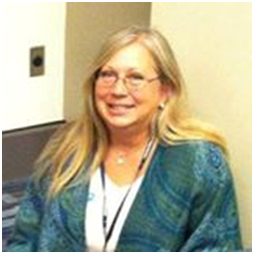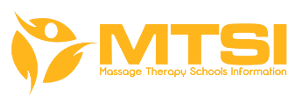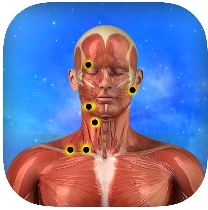
I have been a full time Massage Therapist for 26 years. I have had the opportunity to work in a wide variety of situations. I have worked in Chiropractic Offices, PT clinics, Hospitals, University Athletic Departments, Backstage, Massage Businesses and Spas.
I figured out very early on that I had an entrepreneurial spirit and drive to do some things differently. I founded and operated a private massage school for 12 years, had a large multidisciplinary practice for almost 20 years and now my husband and I have moved to another state and a small home practice. It has been an adjustment but, I have loved every minute of it.
2. Tell us why you chose to go into massage and at what point in your life did you decide to do so? What were you doing at the time? Where did you first hear about the massage career? What factors influenced your decision? What were you looking to get out of this decision?
I became aware of massage in high school. Right after high school (a very long time ago in an unregulated state) I went and applied to be a masseuse at a local place. It was so offensive and disgusting I walked out even though they said they wanted to hire me. I resisted thinking about a career in massage for years after that.
My experience being a Navy wife, living in different states and always being aware of the local massage therapists or schools showed me the much better side of the profession developing. My husband and I got massages and went to couples massage classes in three different states before I went to massage school.
In 1986 I was living in San Diego, Ca. I was a Navy wife with two small children and was ready to go back to school. I was weighing my options between going to the university and getting a degree in Nursing or going to massage school. I decided to go to massage school, not just because it appealed to me more but, I was considering my family. It was less stable but, more flexible.
As a nurse I knew I would have a boss and patients that may not be able to be as flexible if one of my kids was sick. As a massage therapist I felt my clients would understand, be flexible and respect me for putting my kids first.
I was searching for the thing that could be my right livelihood. Massage Therapy was definitely it.
3. What were some of your questions and concerns before further pursuing your massage therapy goals? Talk about concerns with school and the profession itself.
I have always been concerned about the negative aspect of massage. That negative aspect is still with us. Human Trafficking is horrible. I actively connect with my leaders in city and state government and let them know how I feel and that I vote.
I tell them what they can do to make the world a better place, not just for our industry but, for the people, their constituents because they are our clients and we are also constituents. I also make sure I am as knowledgeable as possible. I am a voracious reader. I also connect and do my best to get to know other therapists and people in all the massage organizations.
These days I am very concerned about schools and the training of our future colleagues and how we all may have the option of being more included in Healthcare in the future.
I am excited there are things going on with a number of different groups. The Alliance for Massage Therapy Education, the American Massage Therapy Association and Associated Bodywork and Massage Professionals continue to support schools and instructors with a variety of programs.
I am concerned when I see so many schools that seem to be focused on the numbers and money instead of the students and the program. It is very concerning to see so many hire brand new graduates to be instructors. The retention rates are not good and that is bell weather for change.
As we move into the world of Healthcare with the new ACA program I know there are a number of speed bumps and learning curves ahead. We need to be a unified group to make this happen in the best way for the therapists and the clients. We, as therapists need to understand that we are not all being forced to bill insurance, or work in medical situations but, we also should not limit our peers that have that desire.
4. What is your specialty and what are the top three contributing factors to your success today?
Having 26 years to practice and being a huge participant in continuing education opportunities has given me a variety of skills and specialties. The three main specialties I practice and have had extensive continuing education in are; Lymphatic Drainage, Orthopedic Techniques and Oncology Massage. I am also a member of The Society For Oncology Massage.
Today I would say the top three contributing factors to my success are; Great initial training with an emphasis on Body Mechanics, staying informed and involved and continuing to learn.
5. What do you like about your specialty? What do you like about what you do in general as a career? Why?
I love being able to meet the clients where they are. I appreciate being able and equipped to effectively address the issues in their tissues so to speak. I love working with a wide variety of clients; Cancer Patients, Expecting Moms, Athletes, Geriatrics and just everyone.
6. What do you not like about what you do? Why?
I do not like being in an industry that is not a real profession. We need consistent regulation in all states. We all need to learn to play in the sandbox better with each other. We are limited but, we limit ourselves most of the time.
7. If there were three things you could change about your work or the industry as a whole what would they be? Why would you change them? What would you change them to?
My work is constantly evolving. With every class and every client; there are subtle and not so subtle differences. I embrace change and progress. For me this seems to be an organic process and I am passionate about it. I hope every Massage Therapist can experience this.
As for the industry; I do understand that we will not agree on everything. I wish that all Massage Therapists could be on the same page and understand some things. For instance, definitions such as regulation, licensed, certification, registration, non-profit, for profit, entrepreneurial, and MLM to state a few. I personally believe that if we had some basic understanding of what these words actually do mean we could avoid a lot of unnecessary drama and debate and move forward with more progress in our chosen occupation.
I would like us an industry to embrace our words; Massage Therapy, Massage Therapist. I am constantly amazed at people who are Massage Therapists who practice Massage Therapy that do not realize how impact-ful their work is and how it positively affects their clients health and wellness.
I am also concerned that we have people grasping for other words defining titles such as; Medical Massage Therapist, Orthopedic Massage Therapist, Neuromuscular Therapist, Massotherapist, Bodyworker, the list could go on very long. I think it creates a lack of unity and separation in our industry.
Sometimes it may have value in that someone may have had a lot of experience and education to validate that. Other times it is a weak marketing ploy or desire to be better than others. I have always said I was a Massage Therapist. I might say I specialize in or can effectively work with people with ____. This is also something that confuses clients.
8. How long do you plan to practice and what do you plan to do after?
I am feeling great, in good health and plan to keep at this at least another 20 years. I have no clue what I will do after but, I am never at a loss for something to do in my life.
9. Do you currently have another job or business whether full time or part time? Tell us a bit more about it and how you are able to juggle that with your massage career?
I am currently teaching part time at a very small, private massage school. Teaching a couple of evenings a week is great because I get to be a voice of practical experience in the classroom for the students. It is not a problem with my practice at all.
My clients are thrilled that I am doing this and don’t mind that I had to adjust a few of my available hours. I didn’t need to do this for money; I wanted to do it be part of the solution in the world and not part of the problem.
10. What are some mistakes you made in your career pursuit that you’d like to warn other students about so they can learn from your experience and avoid it?
The biggest mistake I made was not joining the AMTA when I was a student and in my early years as a massage therapist. It is the right organization for me because I love the community, the events and appreciate having a voice and being an active part of things.
So, I encourage students and therapists to explore all of the organizations and talk to a number of people in them to lean more. Don’t listen to what they are saying negatively about other organizations; listen to what they are saying positively about theirs.
11. What would you advice someone who is looking at massage therapy schools? What do you recommend they look for and how? How do you recommend they determine whether the school is the right one for them?
This was a huge process for me. I was in San Diego and first went to every single school’s student clinic in the area and got a massage. Then I attended all of their open houses at least once. Then I went home and spent a few days getting input, encouragement and support from my family and friends before I made the decision.
I recommend that all prospective students do this. Every school may be following the rules and laws but, all of them have a different style and/or focus. I would also recommend asking about all the instructors and about the graduate retention in the field rates, not just the pass rates on tests.
I wanted instructors that not only knew how to make a living doing massage, I wanted ones that had done it and were still doing it. I wanted someone to care if I was still practicing in 10 years. I traveled to San Diego a bit ago and celebrated the 25th the anniversary of my beginning massage school with my first instructor Barry Green.
That was a huge thing for me and him. Make sure they know about body mechanics and are going to teach it. Not from a standpoint of use your forearm and use a stool because it is easier but, how to use your body, leverage, tai chi etc. to last in this field.
12. What do you recommend for someone who wants to go to massage school but cannot afford it?
Make it a priority. Don’t be afraid to ask for help. Don’t be afraid to work two jobs for a while to make it work. Think hard before you take on a ton of student loan debt. Make sure you know all your options well. Be willing to wait a bit and save and make it happen. Do a kickstarter, online fundraising thing if you have to. If it is meant to be it will be!
13. What are your three biggest points of advice for an aspiring massage therapist today? What should they do/not do? What should they think about and consider?
Understand massage therapists are people. Most of us spend most of our days in room with low light, nice music and one person at a time. So forgive some of us if we are introverts or awkward in person or in large groups sometimes.
Know that all massage therapists are not nice. I thought I was going to graduate and join a large circle of people singing Kum-Ba-Ya. Be patient, find your people, and keep doing your best to create your own network of colleagues. It was a hard thing to see so much competition and not a lot of co-petition. I give everyone permission to not be impressed just because someone that has been in the field longer than you is mean, snarky or dramatic.
Do not be afraid of being wrong. Do not be afraid of research. Do not be afraid of progress! Consider how cool it is that our bodies are really this amazing and we get to do this thing we are passionate about and get paid for it. Be thankful for something every day!
Find a mentor! I do not encourage paying for one though. The AMTA has a free mentoring program and real mentors will appear in your life. Pay attention. Ask questions. Do not assume someone you look up to is unapproachable. Show up to meetings and events and meet people.
14. Any open thoughts / comments – anything else that you’d like to share about yourself, the massage industry, profession, future, etc? If nothing, make one prediction for the future of massage?
So much more but, just remember the world is changing and we are all on the transition team! If we do not learn to work together we will all fall apart!
15. What is your passion outside of massage? What are your hobbies and interests which you pursue when you are not working? Tell us why you enjoy what you enjoy.
I have too many things I love to do. I volunteer with AMTA and a local Cancer organization; I love the community and being able to make a difference. I am a voracious reader, I love and collect historical massage books, I read tons of stuff and learn new things all the time. I love the outdoors, I am a master gardener and so love to tend my herb, veggies and flowers, I am waiting for the violets to make my annual violet jelly.
I am good at making time to hike and bike,( I have a vintage 1958 fixed gear bike that is awesome), being so close to Valley Forge Park helps. I bead once in a while, wish I had more time to sew and quilt because I love working with my hands and making things.
My family appreciates that I love to cook and bake but, our whole family does and we are foodies. I adore traveling and do it at least a couple times a year for conventions and continuing education classes.
You can reach Xerlan Deery, LMT on her website here.








Leave a Reply